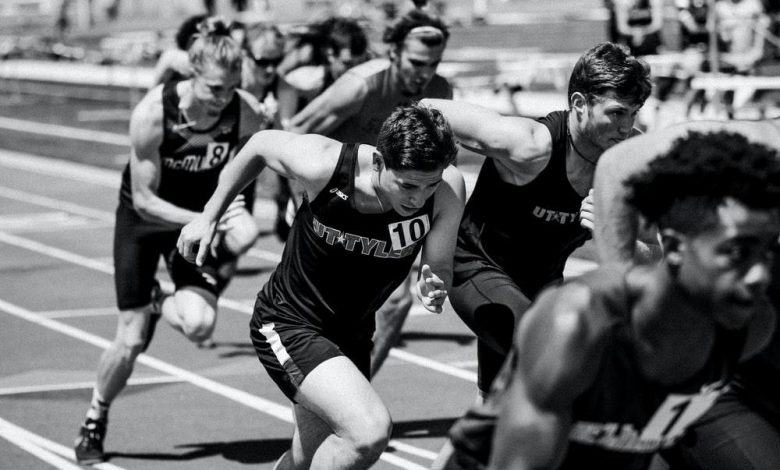How to recover from injuries as an athlete

Even if physical activity is known to have numerous benefits to your body and mind, it’s also dangerous at times. Especially in the sports industry, athletes suffer from many injuries throughout their careers, and sometimes they even need to retire as a result of severe damage to their bodies. But injuries can also be mild and easier to recover from, so here are a few steps to heal your injuries and get back to your usual workouts.
Physical therapy
The sooner you act on your injuries, the better. If you’ve suffered from an accident, be it minor, you should take action as fast as possible to minimise future complications and help your body recover more quickly. Depending on the severity of the injury, you could go to a physical therapist a few times a week, or you can plan your recovery workout to prepare your body to reintegrate into its regular activity properly.
Consider also trying cold therapy, which consists of different treatment options with ice, like ice baths, ice massage and ice packs applied to the affected area. For a light injury, it would be best to apply the ice for ten minutes several times a day, but don’t exceed 20 minutes a day, as you need to prevent nerve and tissue damage in time. Also, don’t forget to never apply a frozen item directly to the skin; always wrap them in a towel for protection.
File a compensation claim
Playing almost any type of sport leads to injuries at some point. Most of the time, the cause of these injuries is in the sport’s practices. For example, you’ve seen athletes fall so often in football, as the field is usually slippery. But sometimes, accidents are due to your employer’s negligence by not providing adequate safety equipment or performing poor training. If you’ve suffered an injury and can prove it’s not your fault, you’re eligible to file a compensation claim.
According to nowinnofeesolicitorsco.co.uk, you have a time limit of three years from the accident to issue court proceedings. Even if you have time to recover from a severe injury, you might need to cover the recuperation costs, especially when it’s about a serious operation. For example, basketball players rely a lot on their hands to do the right movements. Still, a serious hand injury that’s considerably reducing its capacity can be compensated with at least £27,220, which is needed for both physical and psychological recovery.
Practice endurance exercises
Ideally, in a healthy workout routine, you should include all four types of exercises: strength, balance, flexibility and endurance. Although endurance might be overlooked in some sports, it’s an essential part of the workout that you should practise at least two hours a week. Sports like tennis, basketball or soccer need to build endurance, as they’re known as contact sports, requiring players’ tackling.
Practising endurance means preparing your body for future accidents to be in a better shape to recover from. It also keeps your heart, lungs and circulatory system healthy, so you are reducing the risk of many diseases (diabetes, heart disease and stroke) and improving your body’s physical condition. Some moderate exercises to improve endurance include aerobic exercises, like:
- Walking
- Climbing the stairs
- Biking
- Yard working
- Dancing
Stretch therapy
Stretching is necessary before and after every workout or performance to warm up the muscles and avoid any joint sprints. But stretch therapy is the next level of muscle recovery, as it focuses on increasing the joint’s range of motion and improving movement patterns. Therefore, you’ll work on the flexibility of your:
- Muscles, by foam rolling and stretching, causing the relaxation of your muscle fibres.
- Tendons, through stretching and massage, improve the connective tissue flexibility.
Stretching therapy is an excellent way of recovering because you can improve your range of motion, which is essential for reducing the risk of injuries during training and competitions. Here are some techniques you could try at home:
- Self-massage with foam rollers, which enhances post-workout recovery. You need to locate the target muscle, roll the foam roller along with the muscle and hold it on the trigger point for 30 seconds or more. Try doing it up to three times per area.
- Passive stretching. This exercise needs to be done after a five-10-minute warm-up. Then, you will move your limb to stretch the muscle until you feel discomfort and hold the position for 20 seconds.
- Active stretching, which is best performed after passive stretching. This stretching method requires a professional that will guide you in order to avoid further issues coming from bad posture and inadequate practices.
Psychological recovery
Even if an injury visibly affects your body, sometimes you won’t notice how overwhelmed and distressed you’ve become after the incident, especially if it caused you severe wounds. Therefore, you should consider psychological recovery in case you’re experiencing:
- Low concentration
- Lack of motivation to perform some easy workouts
- Increased levels of anxiety about what the future holds
- Aggressiveness or hostility towards everyone around you
There are a few methods you could try to feel better, like:
- Relaxation techniques. You could try anything from reading your favourite book to meditation, imagery or diaphragmatic breathing. Also known as muscle-to mind-techniques, these exercises aim to train you to control the ability of your muscles to release tension.
- Sleep routines. Your body heals better in the night-time when you’re sleeping, so you need adequate sleep (7-9 hours) for your body to regenerate. You can try a three-step routine for falling asleep: first, relax your body physically and mentally. Then, acknowledge your state of calm and in the end, you’ll feel how you’re slowly falling asleep without needing to force yourself.
In conclusion, there are many ways in which you can help your body recover from any type of injury. You should rest and keep your body active at the same time, and don’t forget about your feelings ― psychological recovery is also essential. And if the injury took place because of someone else, ensure that you’re getting the compensation you deserve and make justice.










